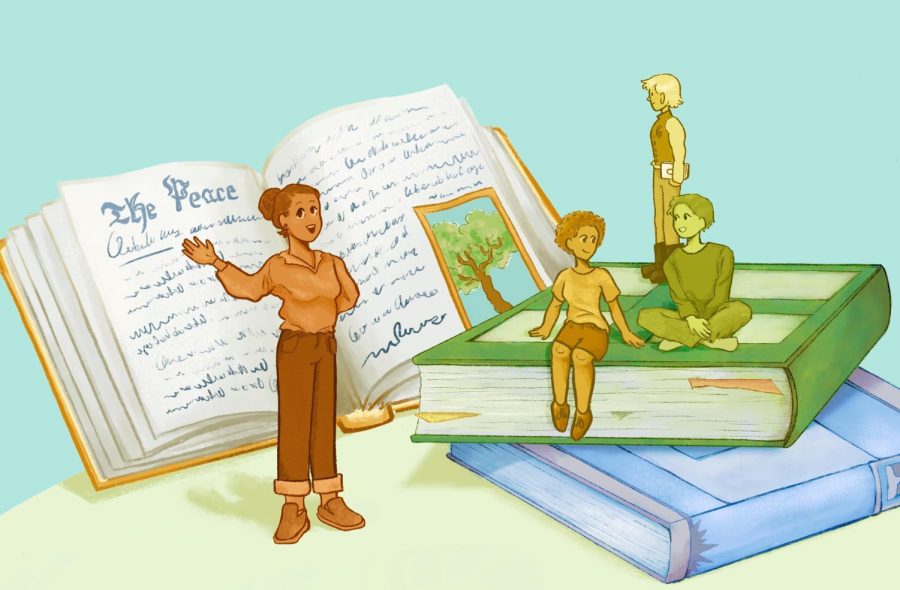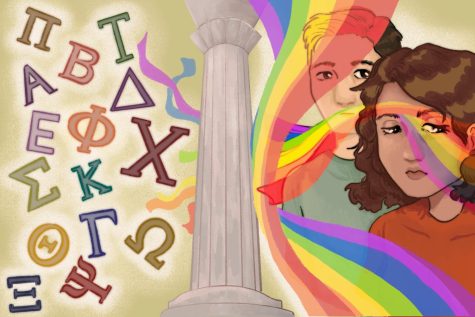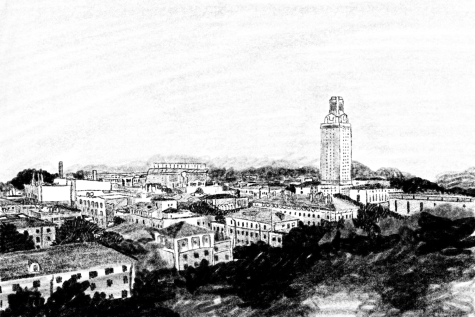Uplift diverse literature through year-round reading programs
September 27, 2022
Literature is a force to be reckoned with.
Books serve as an avenue to equalize those within communities — a passport to greater opportunity and a weapon to enact change.
UT recognizes the power of reading. Around 20 years ago, the School of Undergraduate Studies began hosting the annual Reading Round-Up, which is an academic enrichment and social event organized for every entering freshmen class.
Reading Round-Up allows incoming students to be placed in a book discussion group and are led by distinguished faculty members. Through the program, first-year students have the opportunity to explore unique perspectives, interact with professors and meet new peers.
Professors are not limited to discussing books related to their academic specialty. From public policy to the classics, the broad selection of titles enables students and faculty to explore underrepresented and minority perspectives. As such, UT should explore the expansion of the Reading Round-Up program as an effort to uplift diverse literature year-round.
Students often find the program empowering — academically and socially. Resul Ovezov, an electrical and computer engineering freshman, participated in this year’s discussions.
“(Reading Round-Up) was a great start toward the year,” Ovezov said. “There’s no downside to creating options for students to choose from. It would be beneficial in promoting Reading Roundup, and getting as much attention as (the program can), so that those underrepresented authors and underrepresented communities can be properly represented.”
Professors also agree.
“I thank UT for organizing (Reading Round-Up), not only for the sake of the students but also for professors,” said Wenhong Chen, associate professor of media studies and sociology.
This year, Chen co-facilitated a discussion on U.S.-China relations with a fellow professor, emphasizing the author’s policy experiences, perspectives from Chinese leaders and settling into UT as a freshman.
“I was so blown away to see every kid pull out a hard copy from their backpacks,” Chen said. “Rarely (do) we really sit down with a book … looking at a critical issue from so many different perspectives.”
Corey Smith, a journalism graduate student, participated in Chen’s Reading Round-Up.
“I thought the history of it was really critical and just gave me an appreciation (for new outlooks)” Smith said. “It definitely inspired me to look more into injustices over the (next few) years.”
The expansion of the Reading Round-Up program can be done through multiple avenues. UT’s long-term vision could include all students and a session in the spring semester.
Keri Stephens, a professor in organizational communication technology, has facilitated the discussion groups for nearly ten years.
“It keeps people engaged through the year,” Stephens said. “(I loved when they) offered some funding back to the faculty members to host a get-together in the spring with the students … They’re so inspiring because they’ve come together, they’ve overcome obstacles, and I feel like I get to learn from them.”
However, expanding the Reading Round-Up program has its obstacles. The University has no plans to make the program year-round, primarily because of funding constraints.
“I know that would require some additional staff and monetary support…but it’s a really interesting idea,” said Lane Mann, a senior student program coordinator who organized this year’s Reading Round-Up.
Books open doors to opportunities and lost stories. While expansion opportunities are limited by the University’s budget, the Reading Round-Up program deserves year-round programming — not only to discuss but also to empower students through promoting diverse literature, boosting faculty-student relations and further uplifting underrepresented perspectives.
Wan is an aerospace engineering and Plan II freshman from Houston, Texas.











